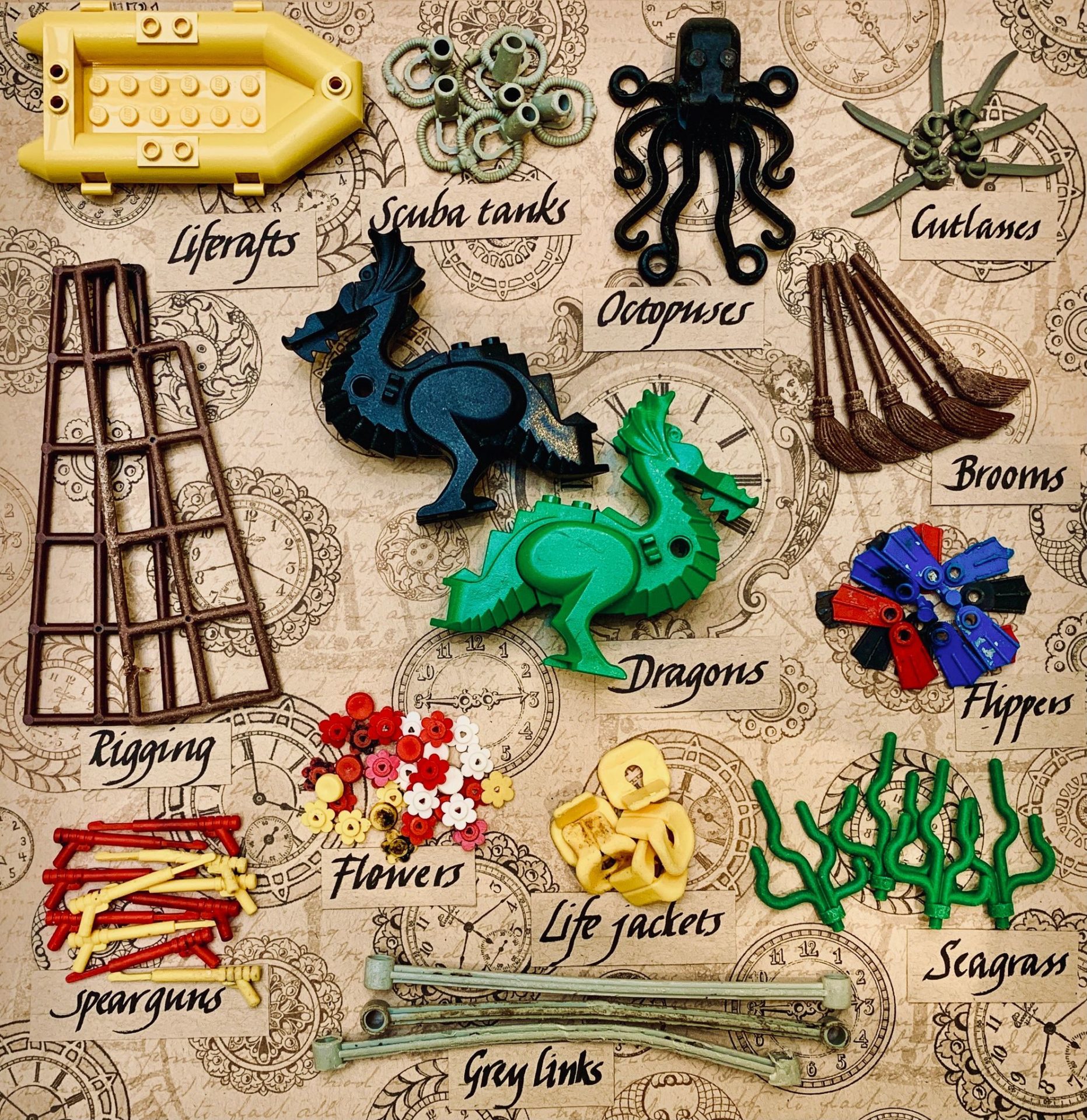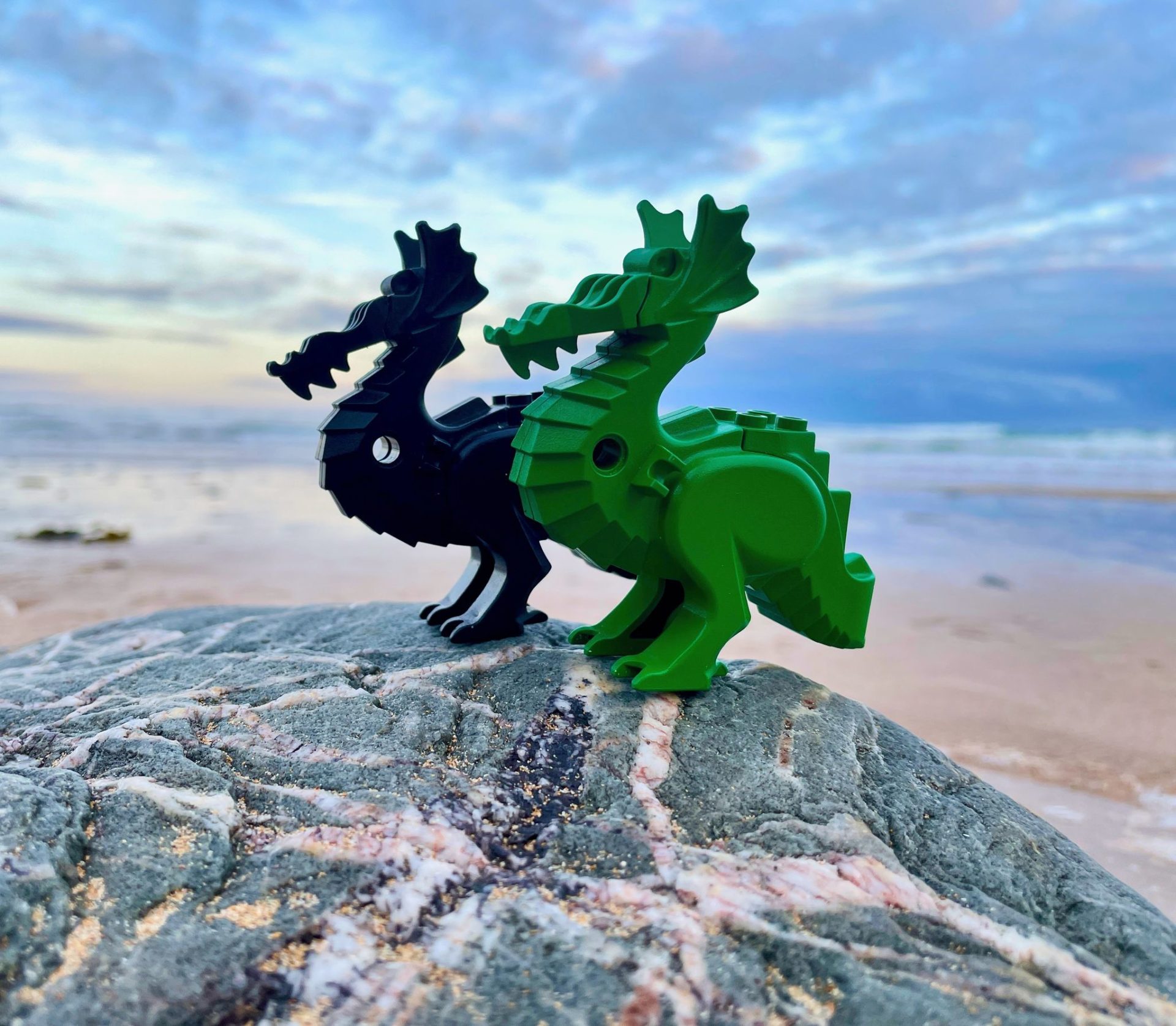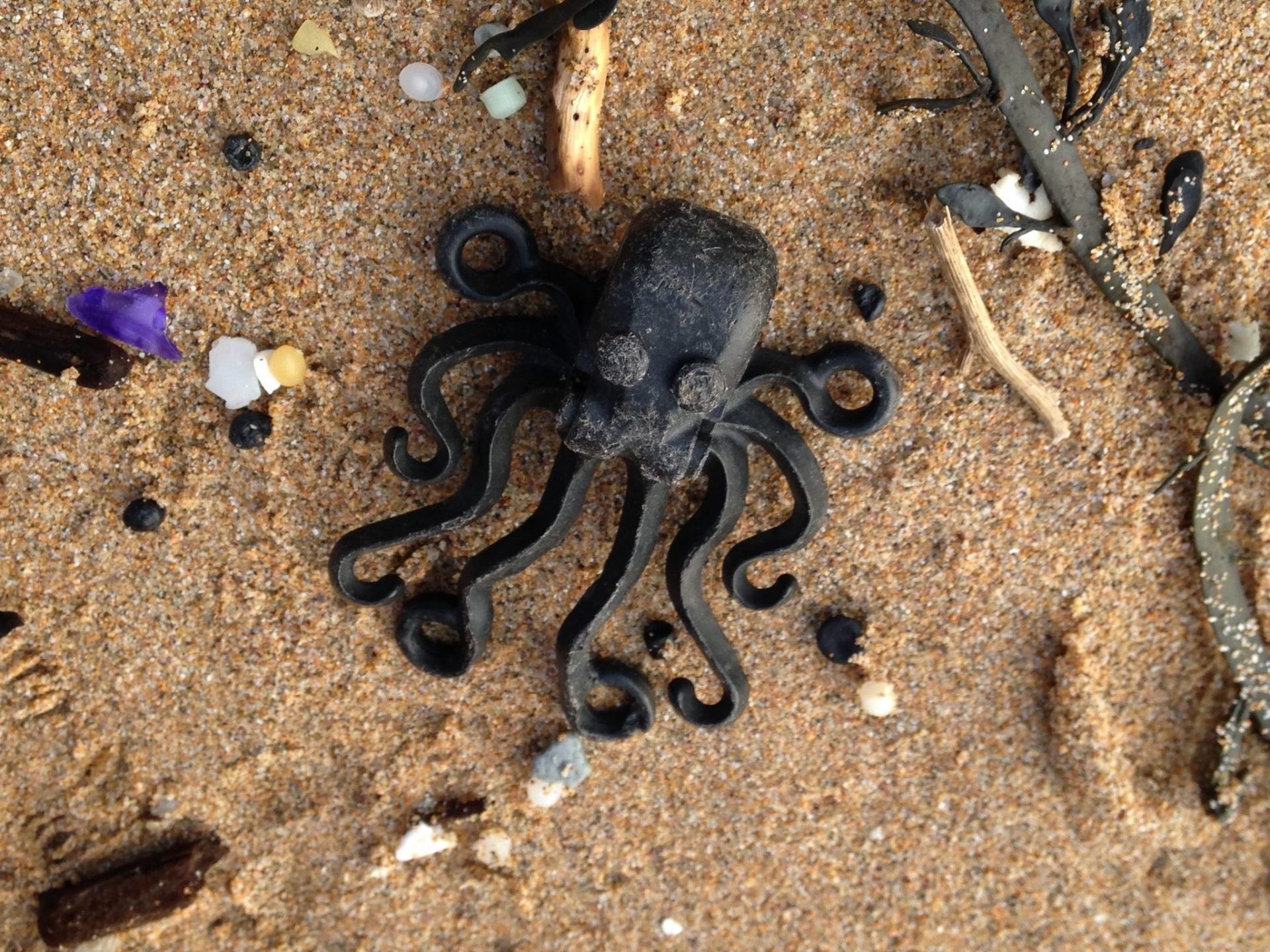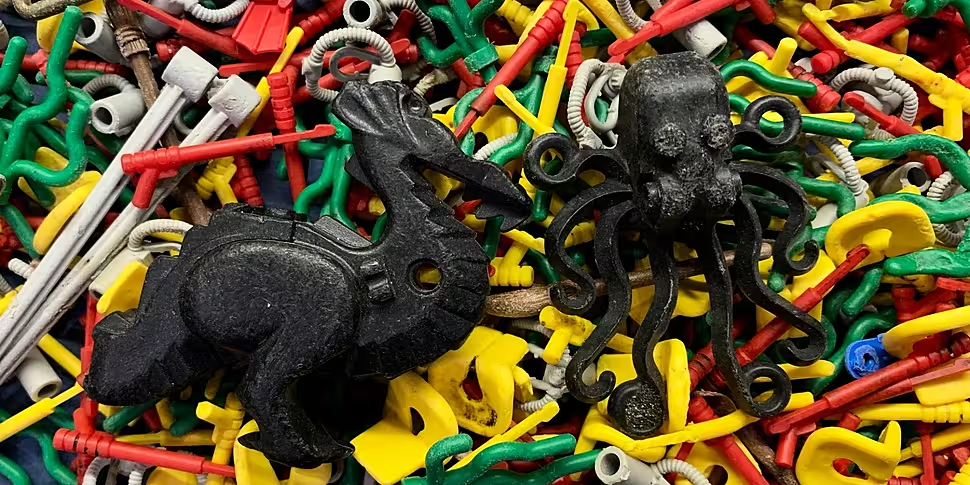There are still millions of pieces of Lego at the bottom of the sea off the English coast.
That's according to author Tracey Williams, who has been tracking them since a container fell into the water off Cornwall in February 1997 while making its way from the Netherlands to New York.
62 shipping containers were lost overboard when the ship was hit by a giant wave, one of which contained nearly five million pieces of Lego.
They have been washing up on beaches across the region and beyond ever since.
Ms Williams told Moncrieff a lot of the lost pieces were actually sea-themed.
"There were 4,200 octopuses... there were tiny pirates cutlasses, there were bits of Lego seagrass, spearguns, little life jackets, life rafts and scuba tanks," she said.
"Some of the Lego floated and some sank".
 Some of the lost Lego pieces that have washed up on beaches. Picture by: Tracey Williams
Some of the lost Lego pieces that have washed up on beaches. Picture by: Tracey WilliamsMs Williams said pieces have been found as far away as Denmark.
"For years beachcombers not just in Cornwall, but all along the south coast of the UK, the Channel Islands, Belgium, France, Netherlands and even Denmark - some of the Lego was found there," she said.
"Most of it sank to the seabed, and what's interesting is that the fishermen are still finding that 26 years on.
"And some of the Lego that sank 20 miles off the Cornish coast is now making its way ashore.
"It's gradually being swept by ocean floor currents along the seabed, and washing up miles from where it went overboard".
 Some of the lost Lego pieces that have washed up on beaches. Picture by: Tracey Williams
Some of the lost Lego pieces that have washed up on beaches. Picture by: Tracey WilliamsMs Williams said it's believed what has been recovered is only a small fraction of what was lost.
"We think there are still millions of pieces lying at the bottom of the sea," she said.
"There were 100 different items in the shipping container, and beachcombers tend to find the same 12 or 13 items all the time.
"So there's an awful lot down on the seabed that hasn't yet made an appearance".
 Some of the lost Lego pieces that have washed up on beaches. Picture by: Tracey Williams
Some of the lost Lego pieces that have washed up on beaches. Picture by: Tracey WilliamsMs Williams said this has also been impacting the aquatic ecosystem.
"We have seen pictures of dogfish trapped in Lego door frames from the spill," she said.
"When they've been caught in fisherman's nets, the dogfish are still alive but have obviously swam through the doorframe at some point and it's still trapped around them".
Ms Williams explained she set up a Facebook page "to try and record what was turning up, who was finding it and which pieces they were finding, and how far it had travelled over the years."









